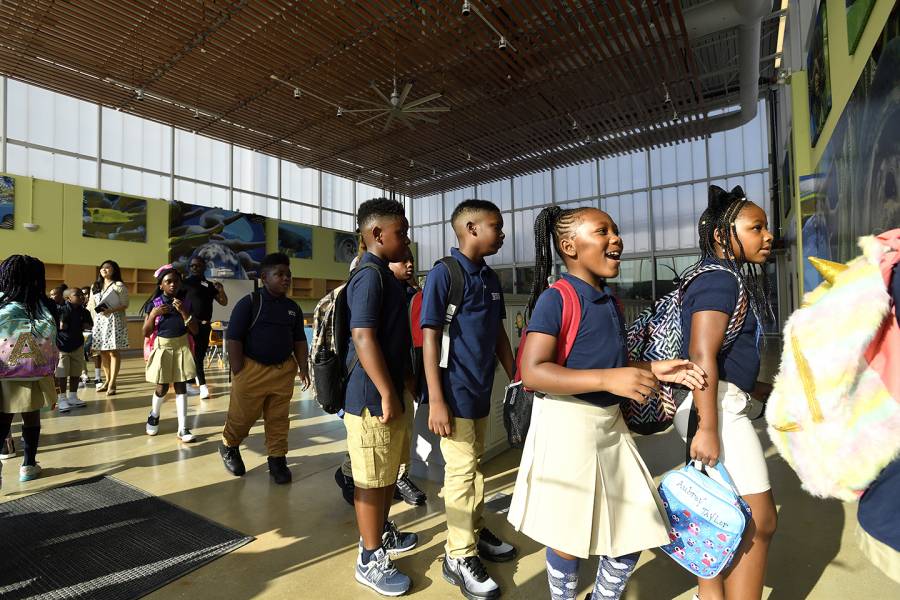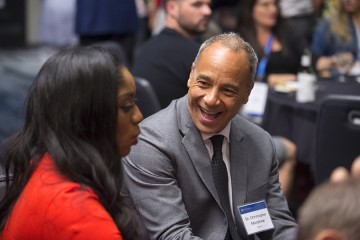Johns Hopkins University today announced the launch of a new interdisciplinary center to take on the complex, urgent issue of school safety and health by developing and creating access to evidence-based solutions and resources. The Center for Safe and Healthy Schools will work to address pressing issues such as suicide, trauma, bullying, and gun violence by equipping school leaders, their communities, and policymakers with the knowledge and tools they need to make informed decisions.
The launch of the center was announced this morning by Christopher C. Morphew, dean of the Johns Hopkins School of Education, at the annual Education Writers Association conference in Baltimore. The center will be led by the School of Education.
"All children and educators deserve to learn and work in safe and healthy schools, and all families deserve to know their children are in environments where they can learn and thrive," Morphew said. "The center will foster a more informed discussion about solutions and best practices in creating safe and healthy school climates, and will provide educators and schools with the knowledge, tools, and resources they can use to achieve that goal."
The center brings together more than two dozen top faculty experts from across the university—from the schools of Education, Public Health, and Arts and Sciences, as well as the Johns Hopkins Applied Physics Laboratory—to apply their expertise toward holistic solutions that effectively address school safety and health as a public health priority.
The center will explore three areas of research that are fundamental to creating safe and healthy learning environments for all students:
- Health and wellness, including mental health, physical health, and social and emotional well-being
- Schools and community engagement, including school functioning, district leadership, neighborhood safety, and involvement of each school's diverse stakeholders
- School security and technology, including school safety technology, physical barriers, the role of school resource officers, and relationships with local and state law enforcement agencies
In the next few months, the center will release new research, best practices, tools, and resources that can be used by districts and schools nationwide—including unveiling revamped academic programming for counseling, teacher preparation, and special education, as well as for school leadership and administration this fall. It will offer a pioneering suite of noncredit "micro-credentialing" courses on safe and healthy schools by spring 2020 that will be available online for educators nationwide.
In addition, the center will roll out pilot projects, research fellowships, and a new seed grant program for innovative and collaborative projects. One project, for example, aims to take a systems-modeling approach to safe and healthy schools—using computational power to develop an assessment and decision tool for school leaders, modeled on similar tools for community functioning and disaster resilience.
Also see
The School of Education will name a director—a national leader in the field who can guide a comprehensive, holistic effort—at a later date.
The annual Education Writers Association conference, which continues through Wednesday at the Renaissance Harborplace in Baltimore, brings together more than 600 journalists and communicators to hear from experts on the most pressing topics in education. Nearly a dozen Johns Hopkins researchers, authors, and alumni will participate in panel discussions during the event.
U.S. Secretary of Education Betsy DeVos will deliver remarks at the event this morning and then take part in a Q&A with New York Times education reporter Erica Green. The Q&A will be broadcast live by Ed Week beginning at 12:30 p.m.










